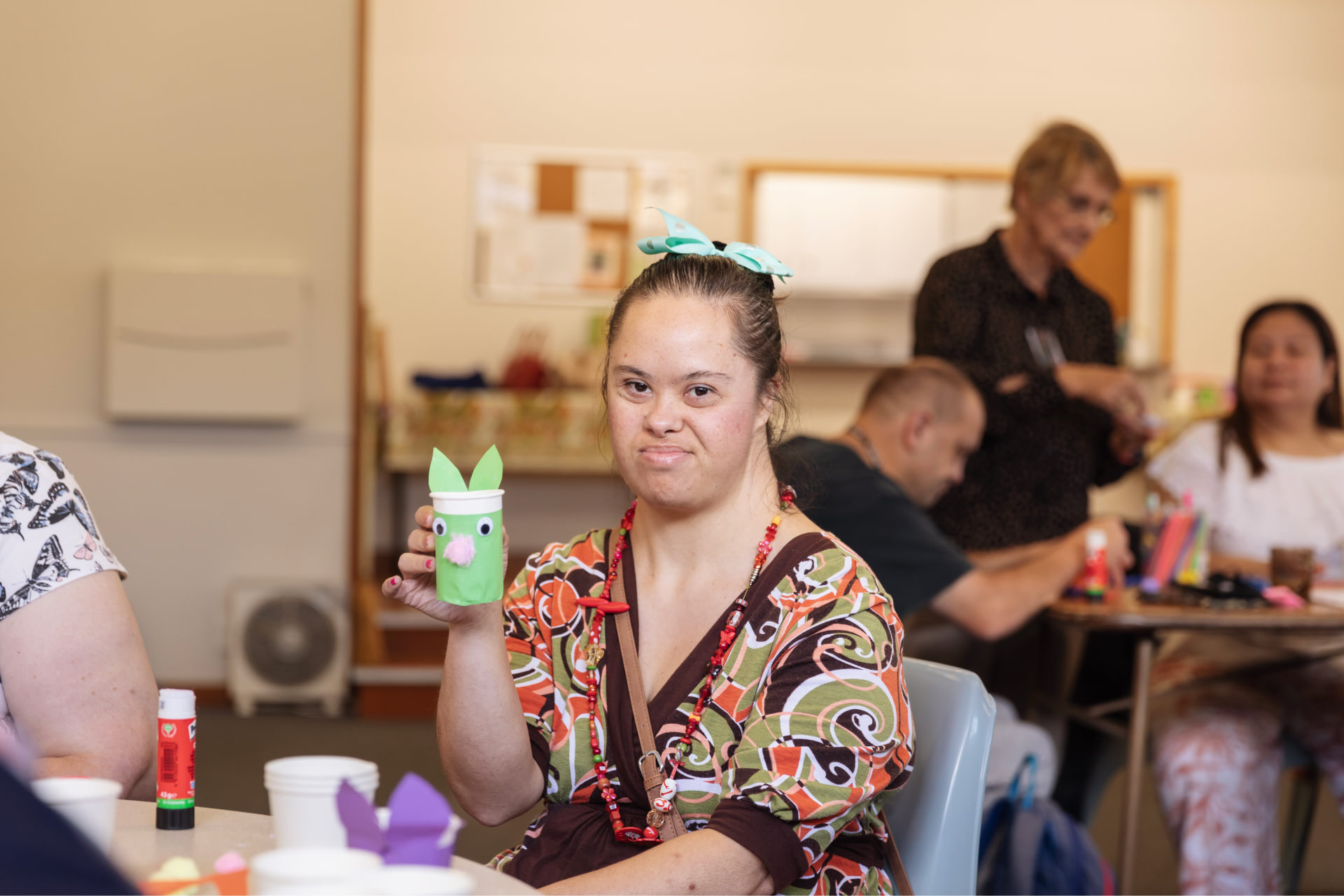
From the Islands
to independence
Read how Aleina’s family supported her to live her best life.
Aleina’s early years were nothing short of magical. Born in New Zealand, she moved to Tonga as a baby with her family, diving headfirst into a life filled with family gatherings and a big, loving community.
Imagine a young girl surrounded by sisters, cousins, friends, and endless social activities—that was Aleina. She was the kind of child who could strike up a conversation with anyone, always chatting and making friends.
When she returned with her family to New Zealand, Aleina was eight, and her life changed dramatically. The tight-knit world Aleina once knew was replaced with something much more isolating. Making friends was tough, and finding activities she enjoyed became a challenge. It was clear that the vibrant, social life she had in Tonga wasn’t going to be easily replicated in her new quarter acre life in Auckland.
Safety was another big concern. Aleina’s adventurous spirit sometimes led her to explore the world on her own. When she was 11, she took a bus on her own to visit her dad, showing boldness but also leaving her family on edge.
‘Everyone can do the same thing’
Navigating the education system was a rollercoaster. Aleina’s journey at school was marked by highs and lows. Her mum, Alison, was a special education teacher herself. She had seen firsthand how mainstream schools often fail to truly accommodate students with disabilities, despite the promise that ‘everyone can do the same thing’.
For Aleina, this meant that learning to read and write was a long road. She only really started to make progress in high school. Alison remembers a proud moment when Aleina wrote an entire page about Shaun the Sheep on her own.
When Aleina was 25 years old, she received funding from WINZ to enrol in a special course at Unitec for two years. Alison reflects that she might have been able to do more to help her daughter become independent like other children. But, in the end, she accepts that we have to make the most of the decisions we’ve made and the resources available.
Living her best life
Aleina was 27 years old, when her
With you throughout your life
Kaikaranga has been with Aleina from the very beginning. We help her kainga access disability supports funded by the Ministry of Social Development. Alison had used Carer Support to pay for Aleina’s activities and support worker. Her support worker was a young uni student who took her to the mall, library, park and many community events to expand her experience.
Alison finds the needs assessment process to be smooth and supportive. “During her younger years, I never had any issues with the needs assessment,” mum recalls. “The process was straightforward. I called Kaikaranga up, they came over, and we had a meeting here. It was a good catch-up and really helpful. Kaikaranga also helped us get a placement in residential care.”
Aleina’s application for residential care was declined at first. “It’s hard to put your reality and the reasons for seeking government support into words on paper,” Alison explains. “But with support from Kaikaranga, our second application was successful.”
“Residential care is a saviour for all of us. But it did not feel like that at first.”
A new home
Moving into her first flat was challenging for Aleina. While she was sociable and loved to talk, her flatmates couldn’t engage with her in the same way. She struggled to connect with the other residents. On Fridays, Aleina looked forward to her weekend sleep over back home. Come Sunday night, she would cry in her mum’s arms before returning to the flat.
A turning point came when a space opened in a different flat closer to Aleina’s family. She spent a night there, they discussed it as a family, and decided it was a much better fit. “We talked about it, and everybody, especially Aleina was happy to move there,” her mother says. The provider that runs the house, Creative Abilities, has been a significant part of Aleina’s improved quality of life.
Creative Abilities became a crucial part of Aleina’s life, offering her a stable and supportive environment. Weekly swims, ten-pin bowling, and a sense of community through church groups all became a part of her routine. The care she received was both personalised and transparent—Alison could keep up with Aleina’s activities through photos and updates sent by Aleina’s house manager.
Alisons’s advice to other parents in similar situations? “Connect with others who understand what you’re going through. Seek out support groups, know your rights, and encourage your child’s independence as much as possible. It’s all about finding a balance and making sure your child has the chance to live a full and meaningful life.”
Aleina’s journey is about more than just daily routines—it’s about living fully and embracing every opportunity. While she can cook, clean, and do her laundry, her kainga wants her to enjoy every moment to the fullest. Because life shouldn’t just be about existing—it should be about thriving.
Talk to us if your needs change
Let us know how we can better support you. We’re here to help.